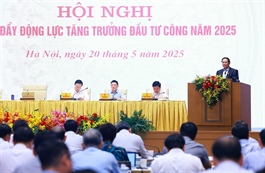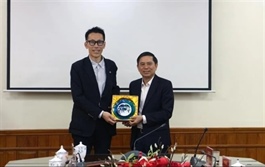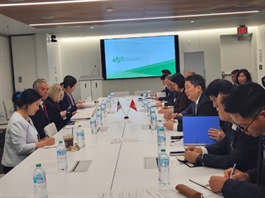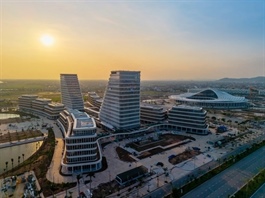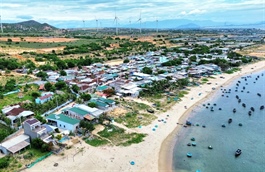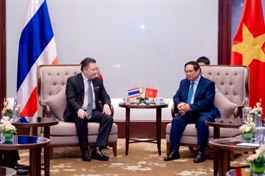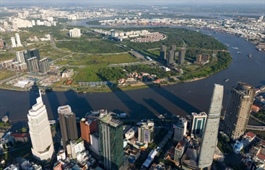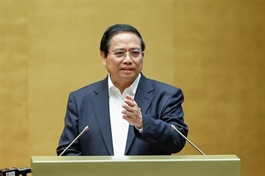Resolution 68, a new dawn for domestic private sector: VinaCapital
Resolution 68, a new dawn for domestic private sector: VinaCapital
Resolution 68 is a landmark directive designed to elevate the status of the private economic sector as "the most important driving force of the national economy," and to outline a clear vision for a rapidly developing, sustainable and globally competitive private sector, according to Michael Kokalari, chief economist at VinaCapital.
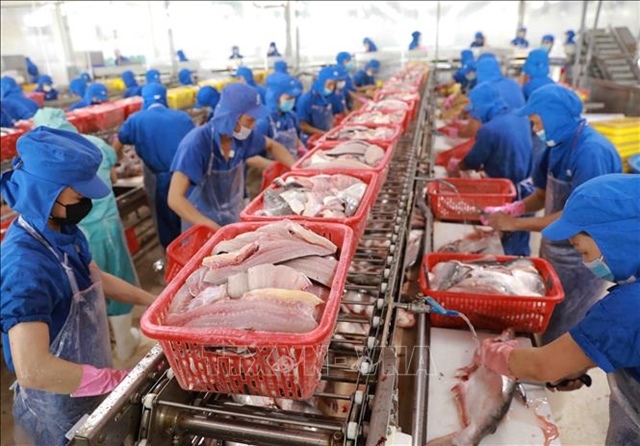
A seafood plant run by a private company in Đồng Tháp. Resolution 68 is a landmark directive designed to elevate the status of the private economic sector as "the most important driving force of the national economy." — VNA/VNS Photo Vũ Sinh |
Resolution 68 is a landmark directive designed to elevate the status of the private economic sector as "the most important driving force of the national economy," and to outline a clear vision for a rapidly developing, sustainable and globally competitive private sector, according to Michael Kokalari, chief economist at VinaCapital.
The resolution issued last week by the Politburo marked a historic “turning point” in Việt Nam’s economic policy, he said in his latest report.
For the first time, the private sector was formally recognised not merely as a “component” or “important part” of the economy, but as "the most important driving force of the national economy."
The core vision of the resolution was to cultivate a fast-developing, sustainable, high-quality, and globally competitive private sector which would be not only an economic powerhouse but also a leader in science, technology, and innovation.
The goal was to help Việt Nam avoid the middle-income trap and achieve its aspiration of becoming a developed, high-income nation by 2045.
A standout feature was its goal to develop 20 large private companies by 2030 that are capable of integrating into global value chains and driving industrial growth.
The model drew inspiration from South Korea, where chaebols like Samsung and Hyundai propelled national development.
By nurturing large private enterprises, Việt Nam aimed to accelerate innovation, create high-quality jobs and strengthen economic resilience.
The resolution ignited momentum for funds to intensify investments in the private sector.
The Government recognised that the next decade presented a critical window for accelerating economic growth before demographic and other challenges made sustaining high growth rates more difficult.
In formulating the resolution, policymakers had sought input from various stakeholders, including the Private Economic Development Research Board (PSD) established in 2017.
Don Lam, VinaCapital’s CEO and founding partner, was vice chairman of the board, and with his fellow members had worked to identify key barriers and propose solutions to address the issues facing private enterprises in Việt Nam.
PSD’s mission was to streamline administrative procedures, improve the ease of doing business and attract foreign investment while promoting innovation and fostering sustainable economic development.
The private sector contributed half of Việt Nam’s GDP and accounted for more than 80 per cent of jobs, but faced persistent challenges such as limited access to finance, bureaucratic red tape and inadequate technological adoption, preventing it from achieving its full potential.
The resolution aimed to cut at least 30 per cent of the time, cost and procedures associated with doing business by simplifying licensing, reducing compliance burdens, and moving from a pre-licensing and approval model to one based on declaration and post-audits for many activities.
The resolution also sought reforms to the tax system to make it fairer and more supportive of business development.
A specific measure included abolishing the lump-sum tax regime for household businesses by 2026, aiming to encourage their formalisation as registered enterprises with a more tailored tax approach.
Localities were mandated to set aside land, including a portion of each industrial park's land area, for small and medium-sized enterprises and innovative startups.
Moreover, private firms could benefit from a 30 per cent reduction in land rentals for the first five years of lease.
Resolution 68 also called for the establishment of dedicated credit channels and financial support mechanisms for SMEs, startups, newly registered firms, and enterprises operating in priority areas like digital transformation and green transition.
One of the resolution’s most critical aspects was its effort to address a long-standing challenge: the preferential treatment given to state-owned enterprises (SOEs) and foreign investors over local private enterprises.
The Government also planned to restructure SOEs in many key areas like industry, agriculture, services, and the digital economy.
This involved selling state shares to private investors and encouraging private companies to take on larger roles in these industries.
Prime Minister Phạm Minh Chính had emphasised that there were “no limits” to private sector development, signalling a strong commitment to reducing state control.
Resolution 68’s importance could not be overstated. It was a landmark directive aimed at enhancing the private sector, positioning it as the "most important driving force of the national economy."
- 07:59 21/05/2025




